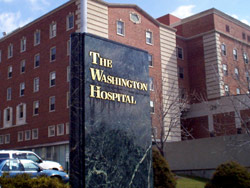
Frontline workers at Washington Health Systems’ flagship hospital voted Wednesday to authorize their negotiating committee to issue a strike notice to administration if no settlement is reached in ongoing contract negotiations. Heading into the third year of the COVID-19 pandemic, Washington Hospital workers are demanding improved wages and working conditions to begin solving the staffing crisis that they say has devastated the hospital. Close to 300 essential workers at Washington Hospital, represented by SEIU Healthcare Pennsylvania, have been trying to reach a new agreement with management since December of last year. “Over the last two months, Washington management has failed to make the kind of progress needed to bring workers to our hospital and keep existing staff here. While we hope management doesn’t force us to strike, we will do whatever it takes to ensure a fair contract for all workers in our union,” said Debbie Torboli, Dietary Aide. Workers say that since the onset of the pandemic, countless workers have left the hospital, in search of better pay and improved working conditions. Employees say they have proposed many solutions to address staffing, retention of existing workers, and recruitment of potential employees, and in turn, they say management has rejected these proposals, and instead has proposed concessions, asking workers to give back gains they fought for in the current agreement. Additional bargaining sessions are scheduled for Friday, January 28th and Monday, January 31st. No date has been set for any potential strike, as the group works towards an amicable settlement with management before the contract expires at midnight on January 31st. Washington Health System issued an emailed statement in response to the threat of a strike, “At this time. WHS officials have not received an official strike notice. We are working hard to negotiate an agreement that both sides can accept in order to continue providing great patient care to our patients and our community, at a time when they need WHS the most.”
